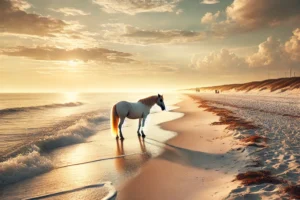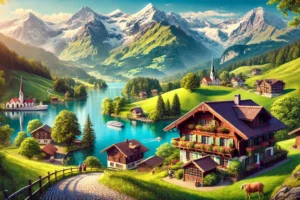Germany is one of the major industrialized countries in Europe. It is a unified union of 16 states…on the north by the North Sea, Denmark and the Baltic Sea, on the east by Poland and the Czech Republic, on the south by Austria and Switzerland…and on the west by France, Luxembourg, Belgium and the Netherlands.
Germany’s history is complex. Its culture is rich, but it was not a single state before 1871. Germany was a confederation from 1815 to 1867 and before 1806 it was a collection of many separate and distinct states.
16 states of Germany at a glance
In a century, Germany has gone through two world wars, the rise of Nazism, the reunification decades after it was divided into two parts, and the ups and downs situations. The European-led country now has 16 states.
Germany is the 7th largest country in Europe by area. From the coastal lowlands of the North Sea and the Baltic Sea to the mid-wave mountains and river valleys, and further south, the densely forested mountains and snow-capped Alps diversify the country’s landscape. Many of Europe’s major rivers, such as the Rhine, the Danube, and the Elbe, flow through the country and help turn the country into a commercial hub.

Baden-Wurttemberg
This southwestern German state shares borders with France and Switzerland. Many people love to see the ruins of the vast Black Forest and Heidelberg Castle. The state capital is Stuttgart.
Bavaria
Munich is the capital of Bavaria, the largest state in Germany. This state covers about one-fifth of the country’s territory. The culture of Bavaria is quite different from all other regions of Germany, even the language. To see the beauty of the Alps, you must come to Bavaria to see the beer drinking festival Oktoberfest.
Berlin
Berlin, the capital of Germany After the end of World War II, Germany was divided into West and East. This state also divided through the Berlin Wall. But a combination of many cultures, Berlin is now considered one of Germany’s most volatile regions. As the capital, Berlin has gained the status of a state.
Brandenburg
The state of Brandenburg is located around the capital Berlin. A number of dazzling palaces, ruins of Roman civilization and natural beauty are scattered throughout the state. Potsdam is the capital of Brandenburg.
Bremen
Bremen is the smallest state in Germany. It is also the smallest in terms of population. However, it is no less than any other state in terms of tradition. There are only two cities in the state – Bremen and Bremerhaven.
Hamburg
This northern German city has also received state status. The port city plays a major role in communicating with Scandinavia and the Nordic countries, not just with its traditional heritage.
Hessen
Hessen is the capital of the state, Wiesbaden. Frankfurt is the largest city in the state. It was in this city that the German writer Johann Wolfgang von Goethe was born.
Lower Saxony
This state is located on the shores of the North Sea. The capital of the state is Hanover. The state is a popular holiday destination for many Germans because of the sprawling beaches.
North Rhine-Westphalia
A successful fusion of different cultures has taken place in this state. The capital of this state is Düsseldorf and capital city of West Germany in divided Germany is also located in this state.
Rhineland-Palatinate
The state shares borders with three neighboring countries, Belgium, France and Luxembourg…state capital is Mainz. It is one of the largest wine-producing regions in Germany.
Saarland
The state is named after the river Sar, which flows through the state. It is located on the border with Luxembourg and France. French and German cultures merged in this state. Its capital is Saarbrucken.
Schleswig-Holstein
This German state is located in Denmark. The state has two seas on either side – the North Sea on one side and the Baltic Sea on the other. Kiel is the capital of this state.
Saxony-Anhalt
A UNESCO World Heritage Site. The tomb of a Roman emperor, ancient castles and palaces, and the birthplace of Martin Luther were also in the kingdom.
Saxony
Saxony is a state located next to Saxony-Anhalt. This state of East Germany was in the socialist part of divided Germany…state shares a border with Poland, with Dresden as its capital.
Thuringia
The name of the East German state of Thuringia is associated with various famous Germans including Wartburg, Weimar, Goethe, Gropius…state capital is Erfurt.





1 Comment
Comments are closed.